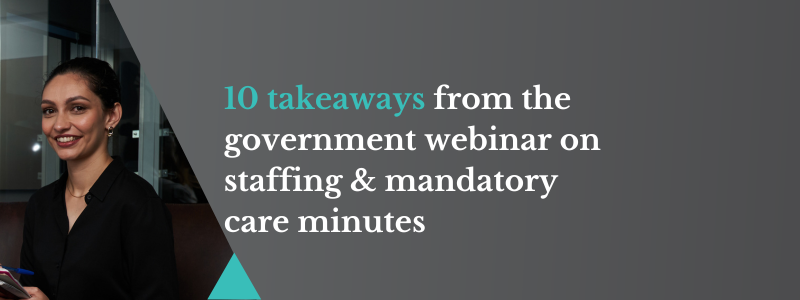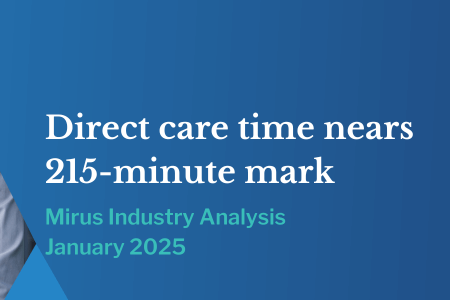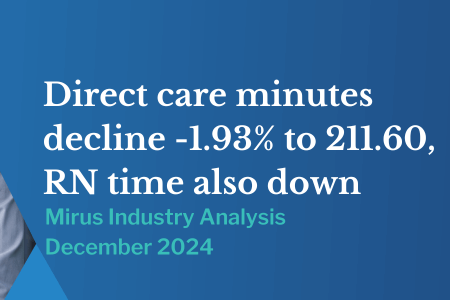10 takeaways from the government webinar on staffing & mandatory care minutes
November 22, 2023 | Aged Care Reform

By Taran Minhas, Senior Consultant
On Tuesday, 21 November 2023, the Aged Care Quality and Safety Commission (the Commission) conducted a joint webinar with the Department of Health and Aged Care (the Department) and the Aged & Community Care Providers Association (ACCPA) to discuss recent changes to providers’ obligations regarding staffing. These changes include the requirement that all residential aged care services have a registered nurse (RN) on-site and on duty 24 hours a day, 7 days a week (effective from 1 July 2023) and the requirement that all residential aged care services meet care minute targets for RNs, ENs, AINs, and PCWs (starting from 1 October 2023).
We have compiled the following key insights from this webinar for you to leverage and prepare.
- The Commission’s primary focus continues to be on ensuring consumers receive safe and quality care that meets their needs. Consequently, any regulatory action by the Commission will be guided by risks to residents are being adequately managed, rather than strict adherence to RN or care minute targets.
- The Commission also acknowledges that workforce availability poses a challenge for some providers, especially those farther away from metropolitan areas in Australia. In such cases, a fair and sensible approach to regulating compliance will be taken.
- That being said, the Commission may periodically conduct some form of monitoring activity for care minutes and RN coverage to ensure visibility of any changes in risk levels to residents. In cases of serious concerns about safety and quality of care, the Commission will intervene, regardless of the underlying cause. Interventions will depend on various factors, such as evidence of actions being taken, and could include a Notice to Agree (NTA).
- Actions taken by the Commission is governed by an assessment of the provider’s commitment to working with the Commission to manage the risk.
- The Commission’s supervisory approach will target circumstances where they hold concerns regarding the residents, without unnecessarily resorting to their regulatory powers. This will include working closely and regularly with the provider to manage risks and address workforce gaps through workforce strategies.
- The Commission wants to “see evidence that ALL providers, regardless of relative risks, have a fit-for-purpose plan to eventually meet their care minute and RN coverage obligations, if not already meeting them.”
- Alternative clinical care arrangements were discussed again – referencing the recently released 24/7 Registered Nurse Alternative Clinical Care Arrangements Fact Sheet. This highlighted clinical governance measures as pivotal to managing risks, especially with workforce shortages.
- Workforce strategies, mentoring programs, technological initiatives, housing and accommodation incentives, milestone recognitions, awards, and retentive incentive programs were highlighted as potential actions to manage workforce shortages.
- The Commission defined “immediate” and “severe” risk to residents in the Q&A section by stating that under current legislation, discretion is limited to normally a Notice to Agree (NTA) where there is strong evidence of harm occurring or will occur in future, in the absence of any mitigation around this risk. The Commission will need reassurance from providers that they are taking timely and all necessary actions to take those residents out of harm’s way.
- The Commission stressed their privileged access to a range of information and data from complaints, SIRS notifications, QFRs, financial viability and modelling (a lead indicator), accreditation audits, and engagements with the service. All of these come together to indicate a particular provider’s picture of risk for the Commission.
The Commission’s utilisation of various information sources to construct a comprehensive risk profile for each provider assures that no stone will be left unturned, building on earlier discussions with the Commission. Mirus Australia have been passionately working on addressing the complexities of care minutes and the AN-ACC framework from multiple angles.
We are supporting clients through this complex time with our AN-ACC Accelerator and Care Time Reporting Assurance services.
How are you preparing your organisations?
If you would like to have a chat about how we can help you, please reach out.


